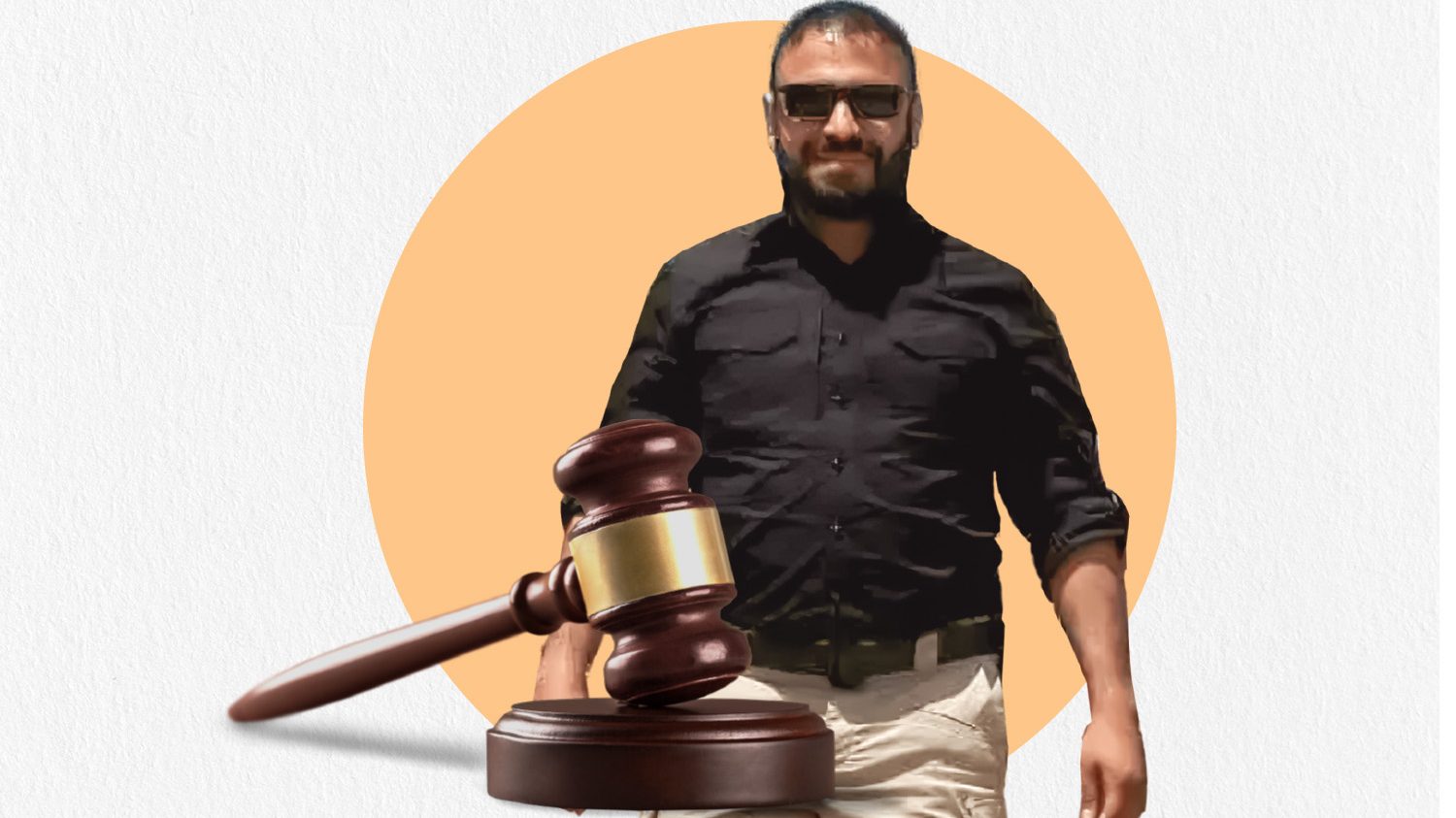Mohammed al-Jassem (Abu Amsha), the leader of the Sultan Suleiman Shah Division (al-Amshat), has so far avoided accountability and prosection in rural Aleppo. Now, however, social media sites and networks have circulated reports of lawsuits being brought against Abu Amsha in European courts.
The news came after judicial authorities and executives operating in rural Aleppo failed to prosecute the group and its leaders under the banner of the Turkish-backed Syrian National Army. This failed prosecution led to questions about the possibility of prosecuting Abu Amsha for domestic violations in European courts.
Efforts to bring Abu Amsha before European courts
Some media outlets have reported that activists based in Europe and the United States of America are suing the Sultan Suleiman Shah Division, which operates in northern Syria and controls areas of Afrin, for alleged human rights violations.
The news centered on the existence of investigations and testimonies collected by Kurdish and Yazidi activists that condemned Abu Amsha, and called on European and American courts to impose sanctions on his group and prosecute the group’s leaders for human rights violations against civilians in Afrin in northern Syria.
Activists gathered a large amount of evidence and identified witnesses to testify before European and American courts, according to the social media posts. The contemplated legal action aims to punish Amashat and its leadership, impose sanctions on leaders and include them on the U.S. sanctions list, and bring leaders before courts to stand trial.
Read Also: Abu Amsha Leads SNA, Activists Comment: Dismissal or Promotion?
Activists reportedly stressed the need to try criminals in fair courts, which operate outside accusations of nepotism and authoritarianism. These factors have contributed to Abu Amsha’s lack of accountability for substantiated violations.
The evidence against the group includes human rights violations relating to the confiscation and sale of both houses and land; the cutting of thousands of perennial trees; the conversion of some civilian homes into military headquarters; the imposition of royalties; violations and murders of innocent women, the elderly and children; and the intimidation of civilians, who have been forced to flee in search of safety.
Enab Baladi researched whether there was a domestic or international European judiciary in which cases had been brought against Mohammed al-Jassem or the group, but did not find any.
The trial of Amshat in Europe: is it realistic?
Enab Baladi’s sources, who are close to the Syrian National Army and familiar with the Abu Amsha case, stated that one of the reasons for the lack of accountability was Turkish support for Abu Amsha. This support is demonstrated by the appearance of Turkish leaders in video recordings monitored by Enab Baladi, where they praised Abu Amsha for his actions. Indeed, the Turkish leaders attributed the region’s stability to Abu Amsha’s deeds.
Bassam al-Ahmad, director of Syrians for Truth and Justice, explained in an interview with Enab Baladi that a complaint could be lodged with the Turkish government and authorities before the European Court of Human Rights.
Nevertheless, it would be necessary to establish a concrete link (and support ties) between Turkey and Abu Amsha, while also showing that legal avenues had already been exhausted in Turkey, before going to the European Court.
Ahmad said those interested in the trial of Abu Amsha should focus on documenting violations and UN justice mechanisms. He added that the perpetrators of these alleged crimes “will one day be tried.”
After isolation and exile
Previously, several charges were brought against Abu Amsha and members of his group in the Sheikh al-Hadid area of Afrin. The allegations concerned the collection of royalties and olive oil from farmers in Abu Amsha’s name; the distribution of people’s crops; illegal land acquisitions; and multiple human rights violations, from rape cases and false accusations made against individuals to bribing courts for acquittals.
In March, Abu Amsha appeared at a meeting of the Syrian Interim Government with military commanders of the National Army. This event was followed by the publication by the Revolutionary Liberation Authority, which is under the umbrella of the National Army, of a speech to Abu Amsha on the 11th anniversary of the Syrian revolution. The speech addressed Abu Amsha as a member of the Revolutionary Authority’s leadership council on March 15th.
This article was translated and edited by The Syrian Observer. The Syrian Observer has not verified the content of this story. Responsibility for the information and views set out in this article lies entirely with the author.


